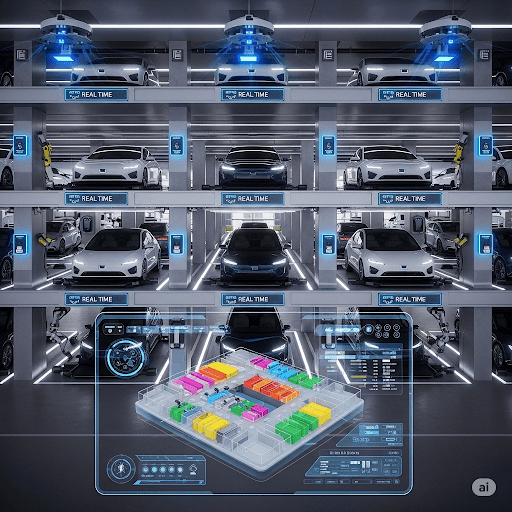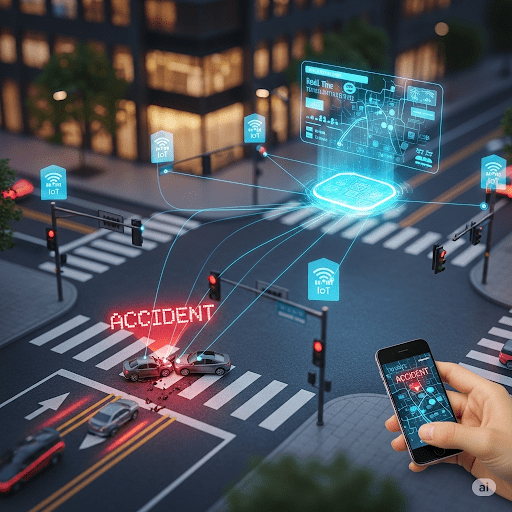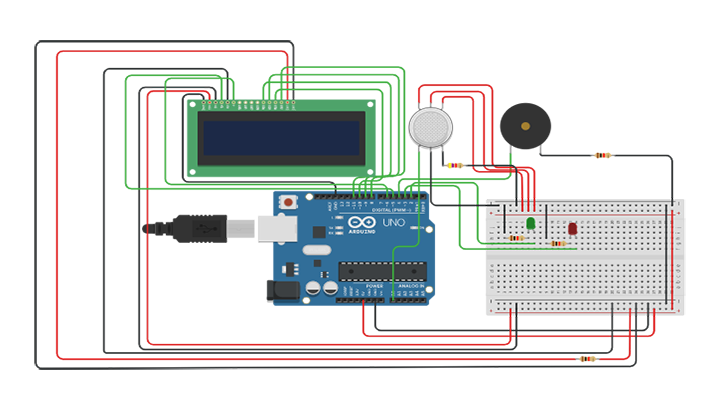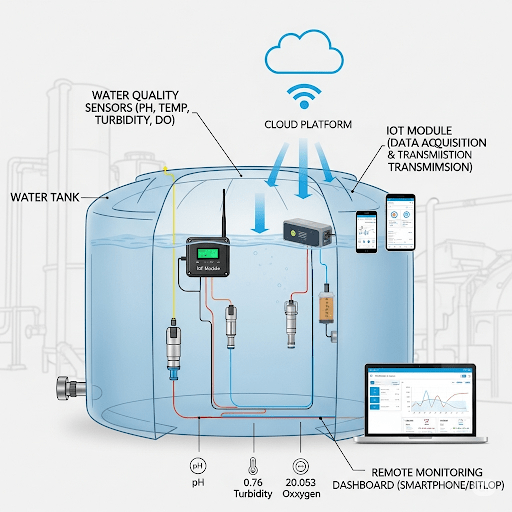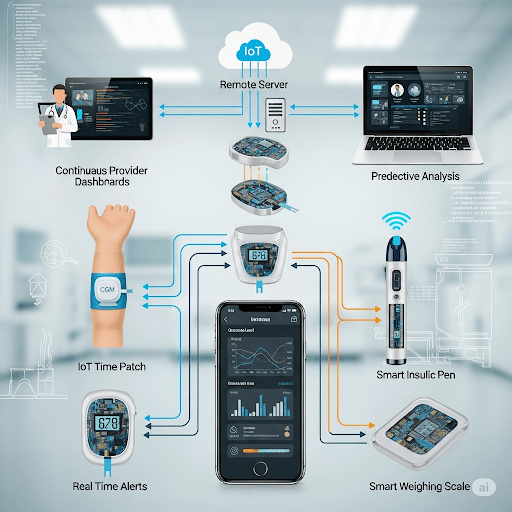Project Categories
Browse by type
-
IoT Projects
Arduino, ESP32, Sensors
-
Embedded Systems
Microcontrollers, Circuits
-
Web Applications
PHP, Laravel, React
-
Mobile Applications
Android, iOS, Flutter
-
AI & Machine Learning
Neural Networks, Deep Learning
Quick Links
Visit STS Shop
All Components In Stock
Arduino, Raspberry Pi, ESP32, Sensors, Motors & More!
Browse ComponentsSmart energy monitoring and control system for traditional factories
Need Components for This Project?
SoftTech Supply (STS) stocks all electronic components you need: Arduino boards, Raspberry Pi, ESP32, sensors, motors, displays, breadboards, and more.
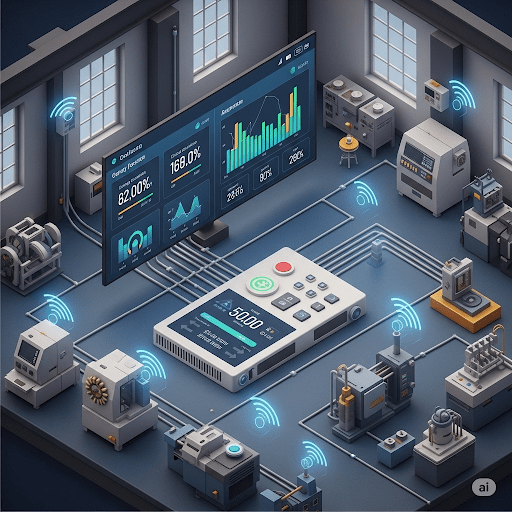
Due to the constant use of various electric and electronic loads in homes and businesses, there is a rising demand for electric energy. With the requirement for an immediate rise in electric energy, especially in traditional factories, coupled with its monitoring parameters and control systems, this has raised a worry that needs to be addressed in many developed and emerging nations. In order to advance energy consumption reduction and transform conventional factories into smart factories, real-time energy consumption monitoring techniques and control systems are urged. In the conventional industries, an electric energy monitoring system has been employed for end uses including process scheduling and billing.
The development of smarter energy management systems, using embedded technologies, is mandated by the rising demand, particularly in the energy-intensive industrial sectors. Industrial end users must be aware of their energy usage in order to cut expenses, enhance firm sustainability, and schedule production lines based on relevant feedback. Embedded systems for energy monitoring and control systems can be used to improve the efficiency of industrial machinery and to minimize energy expenses by optimizing industrial operations. Due to a lack of knowledge and experience in real-time energy monitoring systems to collect and analyse both energy and power quality data in real-time using embedded computing, smart electric energy monitoring has been neglected for traditional factories. Real-time data capture and analysis are now very feasible, practical, and dependable because to the emergence of disruptive technologies like the Internet of Things, machine learning, and Big Data. A low-cost Arduino microcontroller, an unobtrusive split-core current transformer, a relay module, and a voltage transformer are the design pillars of the system. The created system's sensor data showed that the prototype could accurately and successfully record RMS voltage and current, actual and perceived power, power factor, and energy. Traditional factories can have an overview of their energy consumption with the proposed monitoring system, which could lower energy prices, lower carbon emissions and environmental harm, and raise the factory's profit margin.
Ready to Build This Project?
STS Full Project Support
What We Provide:
- • All electronic components in stock
- • Step-by-step implementation guidance
- • Circuit design and wiring diagrams
- • Source code and programming support
- • Debugging and troubleshooting help
Why Choose STS:
- • Quality components at competitive prices
- • Fast delivery in Kigali and across Rwanda
- • Expert technical consultation
- • Complete documentation provided
- • Post-project support available
More Project Ideas from STS
Smart car Parking System in Kigali - Rwanda
This dissertation examines an IoT-based smart car parking system used in Rwanda. Rwanda is a nation that has to be intelligent in a variety of areas, including agriculture, health, and transportation, particularly in terms of parking. People are affected by a variety of parking issues, including...
Accident Detection Based On IoT
Road accidents frequently result in damage, injuries, or fatalities and happen unexpectedly and without warning. Through the elimination of the time lag between the accident's incidence and the initial medical emergency, this research aims to lower the fatality rates following an accident. A mach...
IoT based toxic gas detection and level of landfill - Case study: NDUBA LANDFILL
As the world's population expands, so does the amount of waste. Most landfills release harmful pollutants into the air and into the homes of those who live nearby. Effective landfill management is necessary to protect both the environment and human health and wellbeing. The findings of the litera...
IoT based remote monitoring of water quality in tanks - Case of WASAC
Water is regarded as a basic requirement for humans in their daily lives. It is required in a variety of settings, including the home, the workplace, the manufacturing sector, the hospital, and others. The quality of the water needs to be closely monitored on a regular basis and effectively if on...
Design and implementation of an IoT-Based diabetes remote monitoring system
Real-time diabetes remote monitoring uses Internet of Things (IoT) technology to measure blood glucose levels, heart rate, blood pressure, and body temperature. Typically, a self-management system for diabetes is designed to detect the presence of particular molecules, particularly hyperglycemia,...
About This Project at SoftTech Supply
This Smart energy monitoring and control system for traditional factories project can be implemented using components available at SoftTech Supply (STS) in Kigali, Rwanda. Whether you need Arduino boards, Raspberry Pi, ESP32, ESP8266, sensors, microcontrollers, or any other electronic components, we have everything in stock. STS provides complete project support including component selection, circuit design, programming assistance, and troubleshooting. Our team can help you implement this project from start to finish. Visit our electronics shop or contact us for personalized consultation. We serve students, hobbyists, and professionals across Rwanda with quality components and expert technical support.
